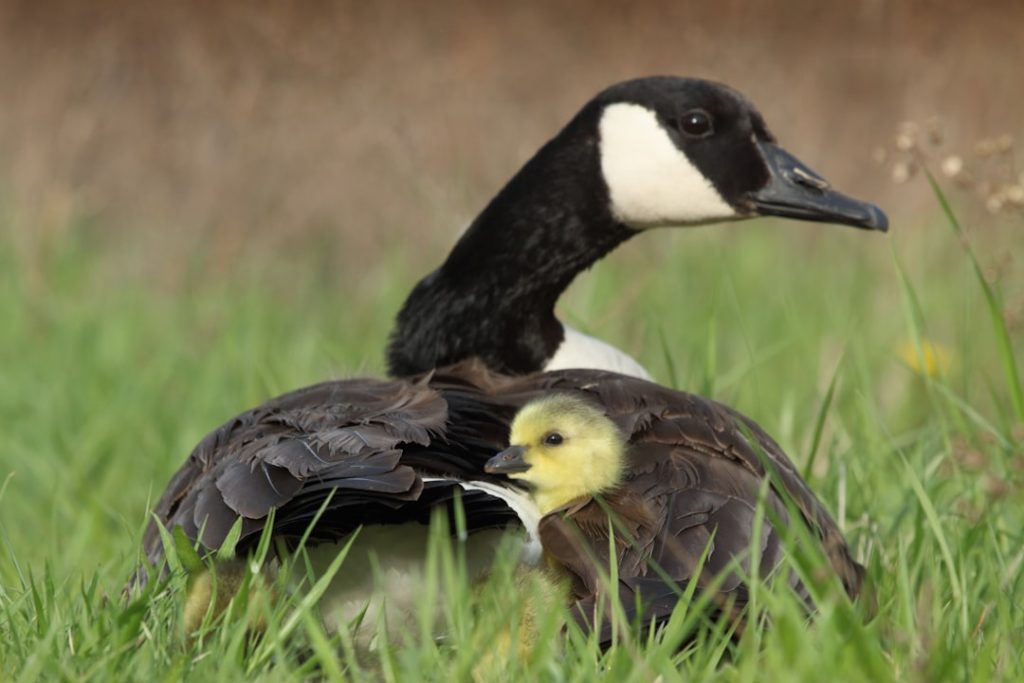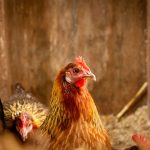Integrating ducks and chickens in a single flock can be a successful and rewarding endeavor for poultry keepers. These two species can coexist peacefully, offering diverse benefits such as varied egg production and effective pest control. However, it is essential to understand and accommodate their distinct social behaviors and needs.
Ducks are generally sociable and friendly, while chickens maintain a more hierarchical social structure. This difference in social dynamics requires careful management during integration. Proper introduction techniques, adequate space allocation, and appropriate housing are crucial factors in ensuring a harmonious mixed flock.
When combining ducks and chickens, consider providing separate feeding and watering areas to prevent competition. Additionally, ensure that housing accommodates the different roosting preferences of both species. Ducks prefer ground-level resting areas, while chickens typically roost on elevated perches.
Regular monitoring of flock interactions is vital, especially during the initial integration period. This allows for timely intervention if any issues arise. With proper planning and management, a mixed flock of ducks and chickens can thrive, offering poultry enthusiasts a diverse and engaging backyard flock experience.
Table of Contents
- 1 Understanding the Social Nature of Ducks and Chickens
- 2 Factors to Consider Before Introducing a Duck to a Flock of Chickens
- 3 Tips for Introducing a Duck to a Flock of Chickens
- 4 Providing Proper Housing and Space for Ducks and Chickens
- 5 Monitoring the Relationship Between Ducks and Chickens
- 6 Benefits of Keeping Ducks and Chickens Together
- 7 FAQs
- 7.1 What are the benefits of keeping a single duck with chickens?
- 7.2 What should be considered before introducing a duck to a flock of chickens?
- 7.3 What are the potential challenges of keeping a single duck with chickens?
- 7.4 How can I ensure the safety and well-being of a single duck with chickens?
- 7.5 Are there any specific breeds of chickens that are better suited to be companions for a duck?
Key Takeaways
- Ducks and chickens can be kept together, but it’s important to understand their social dynamics and provide proper housing and space.
- Ducks are social animals and form strong bonds with their flock, while chickens have a pecking order and can be territorial.
- Factors to consider before introducing a duck to a flock of chickens include the age and size of the animals, as well as their individual personalities.
- When introducing a duck to a flock of chickens, it’s important to do so gradually and provide plenty of space for the animals to establish their own hierarchy.
- Proper housing and space for ducks and chickens should include separate areas for nesting, feeding, and bathing, as well as protection from predators.
Ducks communicate through various vocalizations and body language, using their beaks, wings, and tails to express themselves. They are generally non-aggressive and prefer to avoid confrontation, making them a peaceful addition to a mixed poultry flock.
On the other hand, chickens have a more hierarchical social structure, with dominant individuals establishing a pecking order within the flock. Chickens use vocalizations, body language, and physical displays to establish and maintain their social hierarchy. They can be territorial and may exhibit aggressive behaviors towards newcomers or individuals lower in the pecking order.
Integrating Ducks into a Flock of Chickens
Understanding these social dynamics is essential for successfully integrating ducks into a flock of chickens. By recognizing the differences in their social behaviors, you can take the necessary steps to ensure a smooth introduction and harmonious cohabitation between ducks and chickens.
Factors to Consider Before Introducing a Duck to a Flock of Chickens

Before introducing a duck to a flock of chickens, there are several factors to consider to ensure a successful integration. One important factor is the age and size of the birds. It’s best to introduce ducks and chickens when they are young to allow them to grow up together and establish their social dynamics from an early age.
Additionally, considering the breed and temperament of both ducks and chickens is crucial. Some duck breeds are more assertive and may not be suitable for integration with certain chicken breeds, especially those with a more docile temperament. Another important factor to consider is the sex ratio within the flock.
It’s essential to maintain a balanced sex ratio to prevent aggression and competition for mates. Introducing too many males or females of one species can disrupt the social dynamics within the flock and lead to conflicts. Additionally, providing adequate space and housing is crucial for a successful integration.
Ducks require access to water for swimming and foraging, while chickens need space for dust bathing and roosting. Ensuring that both species have access to their specific needs will help prevent competition and aggression.
Tips for Introducing a Duck to a Flock of Chickens
Introducing a duck to a flock of chickens requires careful planning and management to ensure a smooth transition. One effective tip is to introduce the duck to the flock when they are young to allow them to grow up together and establish their social dynamics from an early age. This can help minimize potential conflicts as they become accustomed to each other’s presence.
Additionally, providing separate but adjacent living spaces for the duck and chickens during the initial introduction period can help them acclimate to each other without direct contact. Another tip is to supervise the initial interactions between the duck and chickens closely to monitor their behavior. This allows you to intervene if any aggressive behaviors occur and prevents potential injuries.
Providing distractions such as treats or toys can also help redirect their focus away from potential conflicts towards positive interactions. Gradually increasing the amount of time they spend together while closely monitoring their behavior can help them become accustomed to each other’s presence and establish a harmonious relationship.
Providing Proper Housing and Space for Ducks and Chickens
Providing proper housing and space is essential for ensuring the well-being of both ducks and chickens in a mixed poultry flock. Ducks require access to water for swimming and foraging, so providing a pond or shallow water source is crucial for their physical and mental health. Additionally, ducks need shelter from predators and the elements, so providing a secure coop or shelter is essential for their safety and well-being.
Chickens also require adequate space for dust bathing, foraging, roosting, and nesting. Providing multiple roosting bars, nesting boxes, and dust bathing areas can help prevent competition and aggression within the flock. It’s important to provide enough space for both ducks and chickens to move around freely without feeling crowded or stressed.
Ensuring that both species have access to their specific needs will help prevent competition and aggression within the flock.
Monitoring the Relationship Between Ducks and Chickens

Recognizing Signs of Conflict
Pay attention to their body language, vocalizations, and behavior towards each other to gauge their comfort level and overall well-being. This will help you detect any signs of stress or aggression, such as feather pecking, chasing, or loud quacking.
Intervening in Conflicts
If any aggressive behaviors occur, it’s crucial to intervene immediately to prevent injuries or stress. Providing distractions such as treats or toys can help redirect their focus away from potential conflicts towards positive interactions.
Meeting the Needs of Both Species
Additionally, ensuring that both ducks and chickens have access to their specific needs, such as water for swimming or dust bathing areas, can help prevent competition and aggression within the flock. By catering to their unique requirements, you can promote a harmonious and thriving multi-species flock.
Benefits of Keeping Ducks and Chickens Together
Keeping ducks and chickens together offers several benefits for poultry enthusiasts. Ducks are excellent foragers and can help control pests such as slugs, snails, and insects in the garden or yard. Their natural foraging behavior can help reduce the need for chemical pest control methods, making them an eco-friendly addition to a mixed poultry flock.
Additionally, ducks are prolific egg layers, providing a valuable source of fresh eggs for your household. Their eggs are larger than chicken eggs and have a rich flavor, making them a popular choice among culinary enthusiasts. By keeping ducks and chickens together, you can enjoy a diverse selection of eggs from both species, adding variety to your daily meals.
In conclusion, keeping ducks and chickens together can be a rewarding experience for poultry enthusiasts. By understanding the social nature of ducks and chickens, considering important factors before introducing a duck to a flock of chickens, following effective tips for integration, providing proper housing and space, monitoring their relationship closely, and recognizing the benefits of keeping them together, you can create a harmonious environment for both species to thrive in your backyard flock. With careful planning and management, ducks and chickens can coexist peacefully, offering unique benefits and adding diversity to your poultry flock.
If you’re considering keeping a single duck as a companion for your chickens, you may want to check out this article on large chicken coop ideas from Poultry Wizard. Creating a spacious and comfortable coop for both your chickens and duck can help ensure they all have enough space to roam and interact with each other.
FAQs
What are the benefits of keeping a single duck with chickens?
Keeping a single duck with chickens can provide companionship for the duck and reduce its loneliness. Ducks and chickens can also help each other by alerting each other to potential predators.
What should be considered before introducing a duck to a flock of chickens?
Before introducing a duck to a flock of chickens, it’s important to consider the size and temperament of the duck and the chickens. Ducks and chickens should be introduced gradually and monitored closely to ensure they get along.
What are the potential challenges of keeping a single duck with chickens?
One potential challenge of keeping a single duck with chickens is that ducks have different dietary and housing needs compared to chickens. Additionally, ducks may have different behaviors and communication styles, which can lead to misunderstandings with the chickens.
How can I ensure the safety and well-being of a single duck with chickens?
To ensure the safety and well-being of a single duck with chickens, provide adequate space, shelter, and access to water for the duck. Monitor their interactions closely and be prepared to separate them if any aggression or bullying occurs.
Are there any specific breeds of chickens that are better suited to be companions for a duck?
Certain breeds of chickens, such as the Silkie or the Orpington, are known for their gentle and docile nature, which may make them better companions for a duck. However, individual temperament and socialization play a significant role in compatibility.
Meet Walter, the feathered-friend fanatic of Florida! Nestled in the sunshine state, Walter struts through life with his feathered companions, clucking his way to happiness. With a coop that’s fancier than a five-star hotel, he’s the Don Juan of the chicken world. When he’s not teaching his hens to do the cha-cha, you’ll find him in a heated debate with his prized rooster, Sir Clucks-a-Lot. Walter’s poultry passion is no yolk; he’s the sunny-side-up guy you never knew you needed in your flock of friends!







